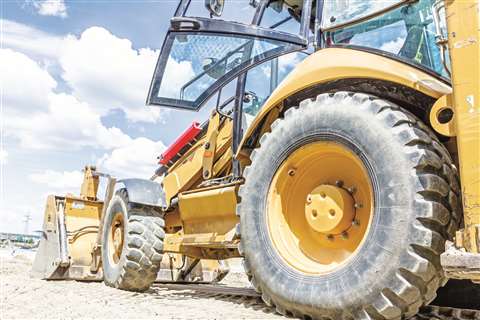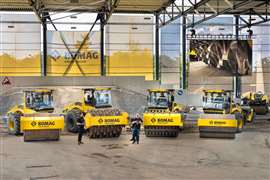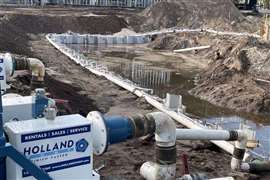6 ways to increase fuel efficiency for heavy construction equipment
05 July 2021
Steve Nendick of Cummins offers advice for site managers on reducing costs and CO2 emissions

Fuel is one of the largest consumption items on any construction project, with diesel traditionally accounting for more than a third of the operational costs of construction equipment.
Clearly, any failure in the fuel management process could have a significant impact on a project’s bottom.
Steve Nendick, marketing communications director for engine and power generation products manufacturer Cummins, shares a few tips that could benefit contractors using diesel-powered equipment…
- Maintenance – Following the recommended maintenance schedules is critical in ensuring that the equipment gives optimum performance. Poorly maintained machines will use more fuel for the same amount of work than a well maintained one. Preventive maintenance saves fuel costs and major repairs in the long term, maximising the productivity and life of the engine.
- Use the right fuel and oil – Follow the OEM’s recommendations for the correct fluids are used and kept at the required levels will ensure the performance of the machine stays within specification. Additional checks on tyre air pressure and air filter cleanliness are also important for optimal fuel efficiency.
 Steve Nendick, marketing communications director, Cummins
Steve Nendick, marketing communications director, Cummins
- Minimise idling – Idling wastes fuel, however efficient the engine is. If machines are left idling for a long time this will increase emissions as well as costs. It can also impact the engine life, with unnecessary wear ion components. If the machines have timed idle shut-off or stop-start capability, this should be switched on. Stop-start capability can help operators minimise costs and CO2.
- Use the right machine for the right job – Machines should be driven at a consistent speed with windows open for optimal performance.
- Use trained operators – Having trained people who can operate machinery at their optimal levels will maximise fuel efficiency and reduce potential damage to the unit. Poorly trained staff will likely be more aggressive when using the machine, increasing fuel consumption. As telematics capability develops, the data gathered will be able to help improve operator training.
- Monitor your machines – Where machines come with monitoring facilities, analysing their data can help reduce fuel consumption. Monitoring also helps to detect potential service problems in advance and reduce repair costs and downtime.
STAY CONNECTED



Receive the information you need when you need it through our world-leading magazines, newsletters and daily briefings.
CONNECT WITH THE TEAM











